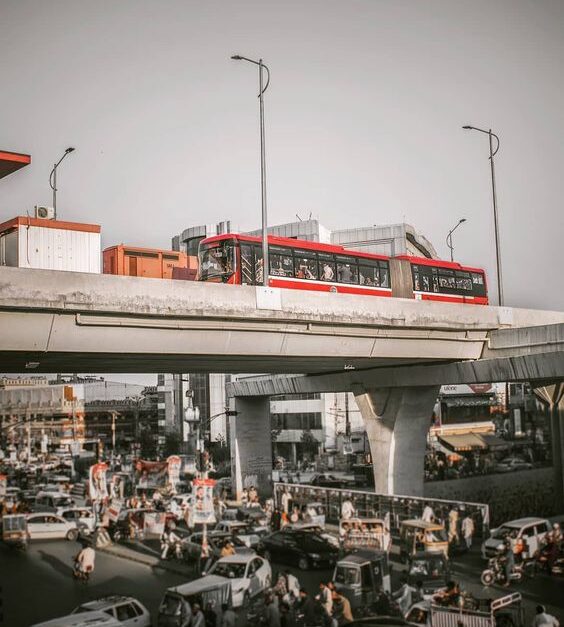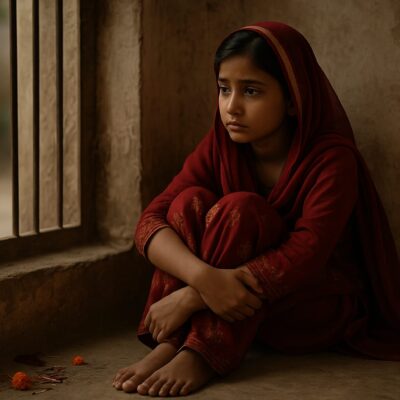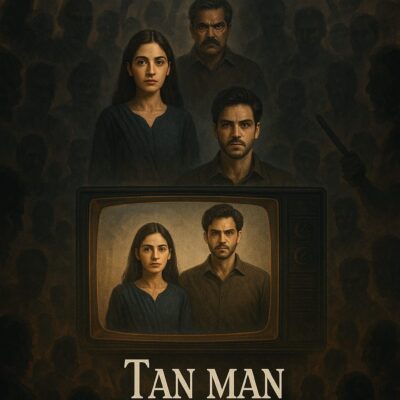From the bustling streets of Lahore to the historic neighborhoods of Islamabad, the rise of metro systems in Pakistan has promised convenience and progress. But behind the shiny facades lies a story of displacement, cultural upheaval, and the erosion of community identities. Explore the untold impacts of Pakistan’s metro revolution in our eye-opening journey through it’s cities.
Metro Systems Role in Resettlement and Dislocation
Resettlement and the concomitant issues emerge as major social development concerns whenever there is large-scale involuntary land acquisition (Sánchez-Triana, Afzal, Biller, & Malik, 2013). Due to construction the local transport routes have changed and people have to suffer specially the business community. They have to face economic crises because of the reduction of customers due to lack of accessibility (BiBi, Yasmeen, Chaudhry, & Hadi, 2015 ). A major concern that raised due to metro projects is the displacement of lower income individuals. As affluent individuals relocate to metro served areas and establish permanent residences, there is less space and fewer affordable housing options for those from lower socio-economic backgrounds. The development of these areas drives up housing costs, making it difficult for low-income individuals to afford rent.
Khalid, a 48 years old small business owner from the upper middle class, expressed his concerns regarding the financial impact of the metro project. He stated;
“The rent for my shop has increased significantly. While there are more people around due to the metro, the higher rent is eating into my profits. I am not sure how long I can keep my business running”
This statement highlights a critical issue faced by local business owners due to urban infrastructure developments like the metro. although the increased foot traffic brings potential customers, the rising costs associated with the improved accessibility are significantly reducing profit margins.
During the construction phase, many traditional businesses, especially small vendors and street hawkers were displaced. These businesses often operate in informal sectors and rely on high foot traffic, which was disrupted by the construction activities. Some of these businesses struggled to regain their customer base even after the project was completed. Business community has also been badly affected as a result of mega metro project, as congested roads led to reduced number of customers due to inconvenience because of lack of parking lots, roads blockage, traffic jams and longer alternate routes (BiBi, Yasmeen, Chaudhry, & Hadi, 2015 ).
The metro has altered the way people commute, leading to a shift away from traditional modes of transportation such as rickshaws, taxis, and mini busses. These traditional transport providers have seen a decline demand, which has negatively affected their livelihoods. Many drivers have had to either lower their prices or find alternative routes to sustain their income.
Faisal, a Taxi driver in Rawalpindi shared his perspective on the impact of the metro system:
“I understand why people choose the metro- its quick and cheap. But for us taxi drivers, it means fewer rides and less income. I have had to look for new ways to attract customers, like offering discounts or better services, but it’s hard to compete. My income had dropped significantly, and I worry about the future”
While the metro provides an efficient and cost effective transportation option for the public, it simultaneously diminishes the livelihood of taxi drivers. Their efforts to adopt by enhancing services and offering discounts highlight the competitive pressure and economic difficulties faced by those in the traditional transport sector.
The informal sector, which includes street vendors and small-scale entrepreneurs, has been both positively and negatively affected. While some vendors near metro stations have benefited from increased customer flow, others have faced challenges due to changes in pedestrian patterns and the formalization of certain business areas around metro stops. Areas with metro access have seen an influx of customers, while traditional markets without metro connectivity may have experienced a decline. Farzana, a middleclass working housewife residing in Rehman Abad, expressed her concerns regarding the impact of the metro station on her living situation:
“My rent has gone up twice since the metro station was built near my apartment. It is getting harder to afford, and I am worried I might have to move further away, where it’s cheaper but less convenient”
Property values near metro stations have typically increased, which can be a double-edged sword. While property owners may benefit from higher values, renters and small businesses may face increased rental costs, potentially leading to displacement. Zubair, a renter of age 43, private school teacher, belonging from middle class said:
“Living close to the metro used to be convenient and affordable. But now, with rising rents, it is becoming a burden. I have had to cut back on other expenses to afford my rent. If it keeps increasing, I will have no chance but to move. Which will disrupt my daily commute and children’s schooling”
A girl of age 21, belonging from upper middle class said:
“My cousin lives near Khatam-e-Nabuwat, and when they purchased their land before the metro project, it was very inexpensive. However, now my father wanted to buy land there, but it has become very expensive. This is a common issue in Pakistan: when the value of resources increases, so does the cost of land”
“I look at what is happening to my city, my pocket, my health, my environment — this will make all of us much poorer” (Toppa, December 23, 2020 ). The displacement of lower income individuals and the erosion of traditional businesses could be seen as examples of how development projects can have negative impacts on marginalized communities as post development theorists critique development as western centric that prioritize efficiency and
economic growth over local needs and cultural preservation.
Cultural Shifts: The Metro’s Influence on Traditions and Identities
The introduction of the modern transportation system like the metro can also impact the cultural fabric of traditional economies. Shumaila, a housewife in committee chowk of age 54 said:
“Many traditional shops and vendors have been replaced by modern stores and restaurants”
The shift to a more formal and structured transportation system may undermine the social and cultural interactions that are part of traditional commuting methods. ‘Developmental projects for the betterment of transportation facilities bear uncertain affects in the lives of the residents of the locality’ (BiBi, Yasmeen, Chaudhry, & Hadi, 2015 ). Rapid urbanization, characterized by the emergence of large buildings, shopping centers, can lead to a dilution of cultural heritage as people adopt more modern lifestyles. A house wife of age 26, belonging from middle class said:
“There has been a significant change in public behavior. When travelling on the metro, I often sue my mobile phone. Since gatherings do not take place and there is minimal conversation, most people sue their phones and talk less”
The respondent observes a notable shift in public behavior on the metro. She mentions that she, along with most of other passengers, often uses a mobile phone while travelling. This suggests a trend towards increased individualism and digital engagement in public spaces. As Nabeel, a college student of age 17 from middle class said:
“With the metro, its more efficient but less personal. I miss those moments of connection”
Rizwan, a shop owner in Saddar said:
“As a shop owner near a tourist spot, I have seen a significant change in the type of customers we get. While it’s good for business, I have also noticed a shift in the demand for traditional goods. People often prefer more modern, mass-produced items over our traditional handicrafts. It is a challenge to preserve our cultural heritage while catering to the changing tastes of visitors”
While cultural diversity can bring new influences, it can also lead to erosion of traditional practices and lifestyles. Rizwan’s experience as a shop owner highlights the challenges of preserving cultural heritage in the face of changing consumer preferences and globalization.
Altered Landscapes: How Metro Systems Shape Community dynamics
Urbanization is associated with a country’s economic development; however, in the case of Pakistan, the transformation is anticipated to take place within a short time frame, thereby increasing already severe negative externalities, including urban sprawl, congestion, and pollution (Sánchez-Triana, Afzal, Biller, & Malik, 2013). Metro project have a significant impact on community dynamics, especially concerning privacy. In the case of Rawalpindi metro project,
residents have raised concerns about privacy due to the elevated tracks, which allow passengers to see into homes and rooftops. This intrusion into their private lives can cause discomfort and a sense of violation among community members, affecting their daily routines and overall sense of security.
“Before the metro was built, we had a sense of privacy in our home. We could keep our curtains open and enjoy the natural light. But after the metro started operating, we noticed that passengers on the elevated tracks could see into our living room and bedroom. It made us uncomfortable, and we had to keep our curtains closed all the time, which is disappointing”
Another respondent shared concerns about the impact of the metro project on privacy. He explained that the elevated flyover allows passengers to see into the rooftops of homes in the community from Committee chowk and surrounding areas. This has compromised their privacy, as people on the metro can observe residents on their traces. He recounted an incident where his father felt uncomfortable while washing his face on the terrace, expressing frustration over the lack of privacy.
The construction of the metro has changed the community’s landscape. Many residents opposed the project because they feared it would disrupt their lives. They now report feeling exposed, with metro passengers easily able to see into their homes.
“Using the metro, I sometimes feel like my privacy is being invaded. There are security cameras everywhere, and it feels like I am being watched all the time. It’s a bit unsettling, even though I know it’s for our safety”
This loss of privacy has become a part of their daily lives, affecting their sense of security and comfort.
“When the metro is crowded, it can be really uncomfortable. You are packed in with other people, and there is no personal space. It’s not just about physical privacy; it’s also about feeling comfortable and secure in public spaces”
It reflects a complex interplay between modernization efforts and the lived experiences of local residents. Escobar’s framework emphasizes the importance of understanding development as a process of encounter, where diverse actors and perspectives intersect and shape outcomes. In the case of metro projects, the voices of the local residents who express concerns about privacy highlight the need to consider the subjective experiences and impacts of development interventions. Nadia Kanwal, a school teacher, has been travelling on the metro since it was first inaugurated. She calls the metro a “blessing for women” since there is a separate compartment for them in each bus to protect them from harassment. The influx of outsiders can sometimes disrupt local traditions and lifestyles. As new cultural elements are introduced, traditional practices may be overshadowed and abandoned, leading to cultural erosion.
Before the metro, our neighborhood had a very close-knit community feel. We had our own way of celebrating festivals and events. Now, with so many new people around, those traditions are fading away. It’s like losing a part of our identity”
The mcDonaldization (Nickerson, 2024) of metro projects in Pakistan has profoundly impacted social structures by promoting efficiency and economic opportunities while also leading to cultural homogenization and social disruption. Predictable schedules and routes lead to more regimented lifestyles, potentially reducing spontaneity in social interactions. Increased control with enhance surveillance, impacting privacy and altering how people behave in public places.
Conclusion
Balancing urban development with environmental preservation and community well-being is crucial for sustainable progress. As ‘First, the old transport system should be replaced with improved mass transit buses. A dedicated lane should be provided to the buses, buses should be aligned with a strict schedule, and accessibility should be at the forefront of designing any transit service’ (Saqib, 20-01-2022).
The metro project, while enhancing urban connectivity, have led to significant challenges for local communities, particularly lower income individuals and small business owners. Displacement, increased rents, and the disruption of traditional businesses and transport modes have created hardships. As property values rise near metro stations, affordability decreases for those with limited means, leading to potential displacement and financial strain. Understanding and addressing the specific concerns raised by shopkeepers are crucial to ensuring balanced development and a positive impact of transportation infrastructure on local businesses and communities.
Metro has significantly impacted the cultural fabric of traditional economies and neighborhoods. While it brings modern conveniences and promotes cultural tourism, it also leads to the displacement of traditional vendors and the erosion of cultural heritage. The discomfort and sense of violation experienced by community members due to the loss of privacy disrupts the dominant discourse of development as solely beneficial. It underscores the importance of
acknowledging the diverse ways in which development initiatives can affect people’s lives, beyond economic indicators or infrastructure improvements.
References
https://ideas.repec.org/b/wbk/wbpubs/15798.html
https://geoenvironmental-disasters.springeropen.com/articles/10.1186/s40677-020-00168-6
https://press.princeton.edu/books/paperback/9780691150451/encountering-development
https://www.dawn.com/authors/6959/sabrina-toppa
https://elibrary.worldbank.org/doi/book/10.1596/978-0-8213-9929-3?chapterTab=true#






5 Comments